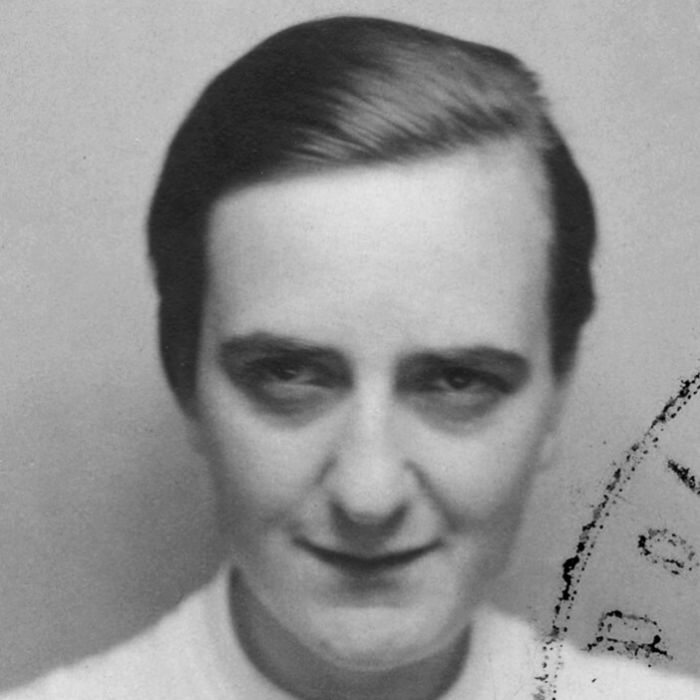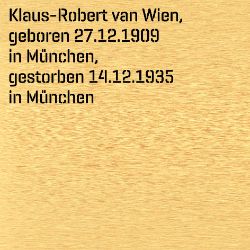Anneliese Nora van Wien was born in Munich on December 18, 1908. She was the daughter of the Jewish lawyer Bernhard van Wien and his wife, Agathe. Anneliese grew up with her two brothers, Dietrich and Robert. From September 1919 to March 1926, she attended the Luisengymnasium high school, showing great interest in artistic subjects and languages. After her Abitur (school leaving and university entrance examination) she studied Pharmacy, subsequently working as a pharmaceutical assistant at the pharmacies Theresien-Apotheke and Mohrenapotheke.
In October 1936, Anneliese van Wien emigrated to Johannesburg in South Africa, where she believed she had escaped Nazi persecution. After a spell in hospital, however, she returned to Munich in July 1938. A report by the Städtisches Gesundheitsamt (city health office) gave as the reason an outbreak of “schizophrenia”. To begin with, Anneliese van Wien lived once more at Kaulbachstrasse 33 with her mother, who ran a room letting business. On September 6, 1938, she was admitted to the university psychiatric sanatorium. She was now in the guardianship of the Jewish lawyer Albert Oppenheim. Just a few days later, on September 19, 1938, Anneliese van Wien was sent to the sanatorium and nursing home Eglfing-Haar. There, the 30-year-old was compulsorily sterilised on March 23, 1939. Finally, on September 20, 1940, she was deported with 190 other Jews to the “euthaniasia” killing site Hartheim near Linz, where she was murdered with carbon dioxide on the same day or a few days later.
Anneliese van Wien’s brother Robert had died in 1935, and her father in 1927. Her mother Agathe van Wien was deported by the Gestapo (secret state police) to the Theresienstadt ghetto on July 3, 1942, and from there, two months later, to her death in the Treblinka extermination camp. Only her brother Dietrich managed to emigrate with his family to the USA. His wife, Anneliese van Wien, wrote a Page of Testimony in Yad Vashem for her sister-in-law of the same name. (Text: Sibylle von Tiedemann; editor: C. Fritsche; translation: C. Hales)








